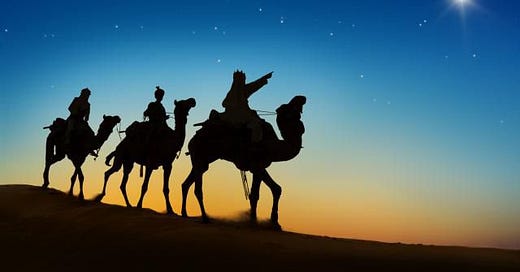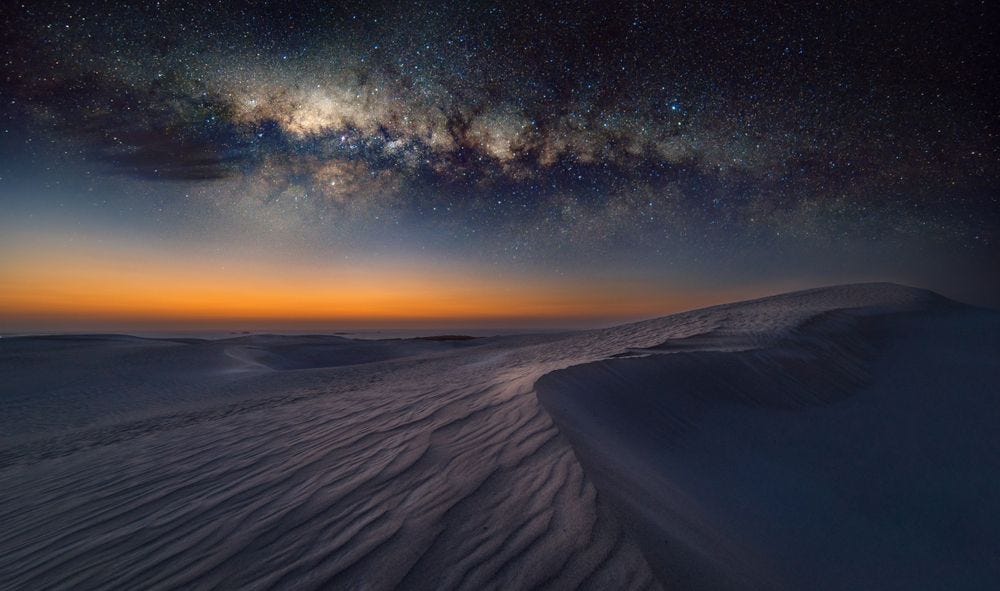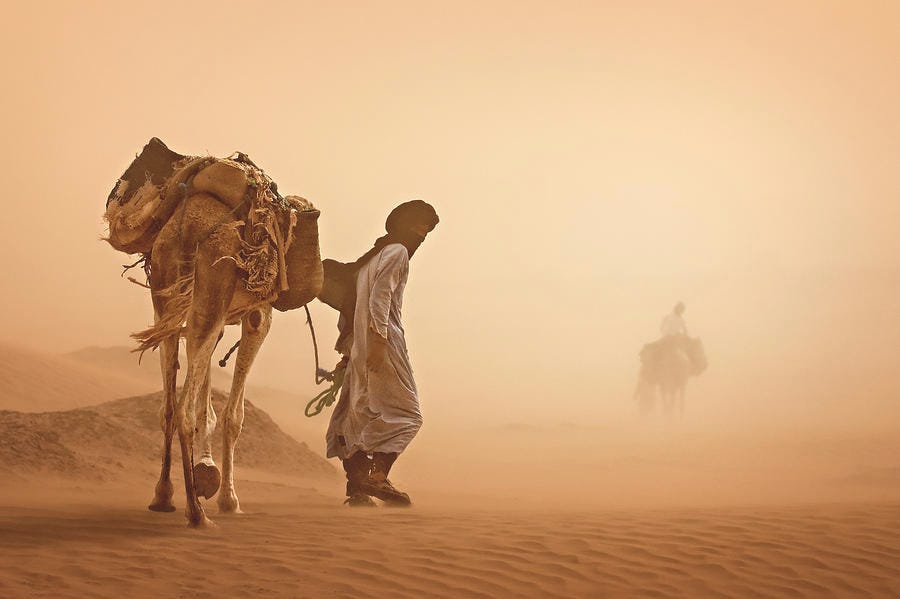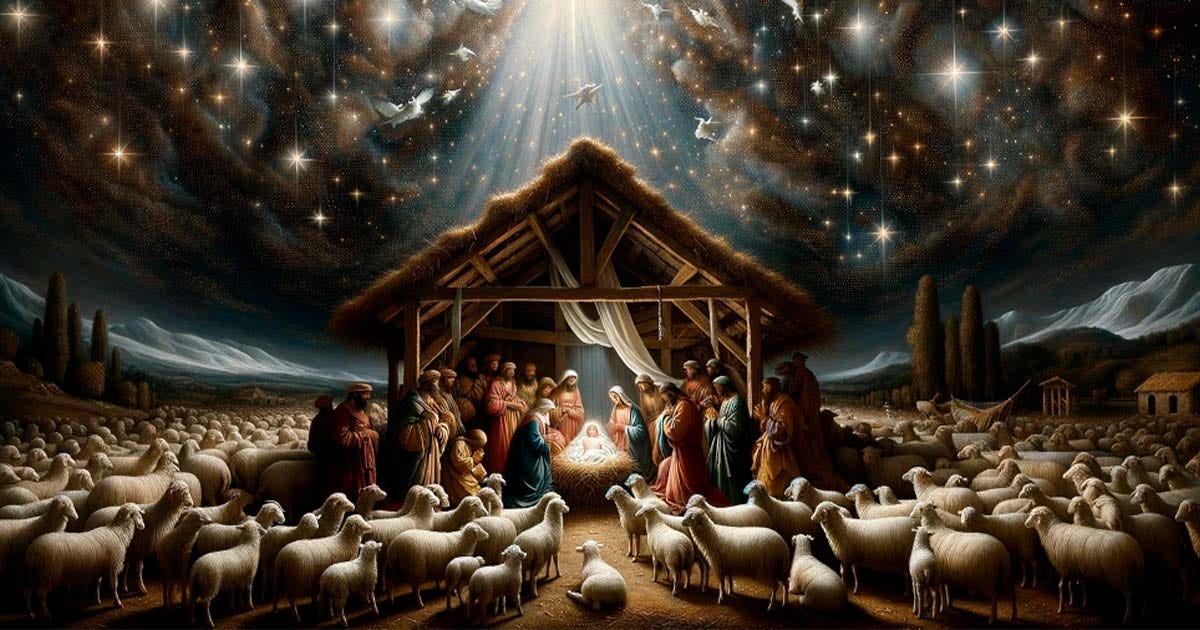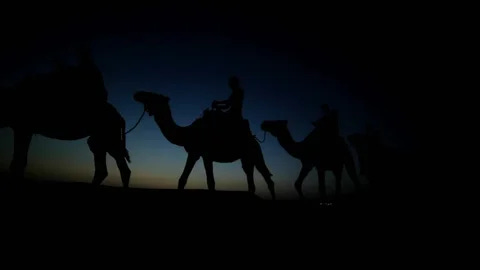You, sent out beyond your recall, go to the limits of your longing. Rainer Maria Rilke
**A note about these final days of Advent: As in years past, I’ll be concluding this series with entries devoted to those who appear in the birth narrative of Jesus. Yesterday’s, on the Shepherds, is new for this year. The next few days are from Advents past. My hope is that you will take time with them, even the ones—for those of you who have been part of this project in previous years—you may have read before. None of us is who we were twelve months ago. Another year lived may better attune us to the themes woven throughout the birth story of Jesus: hope, fear, love, danger, wonder, awe. So, I invite you to come at these reflections—and much more importantly, the timeless stories that inspired them—with a beginners mind. You may be surprised at what you see now that you didn’t before.
Advent Day 22: The Magi
Truth and Beauty—which is to say God—cannot be contained. They cannot be circumscribed, claimed or controlled by one culture, tribe or tradition. The walls we build around Love so that we alone may possess it and define its parameters will always come tumbling down, if our Love is truly worth having.
Such is the lesson of the Magi. Not Jews from Israel but, legend has it, Zoroastrians from Persia—brave seekers who left behind everything known and comforting to follow the trail of Love where it led. In so doing, they embodied the great revelation of Christianity: that Christ is without borders, and unbound by land or culture. Or, as that ‘90s dancefloor classic Vogue put it, Beauty’s where you find it.
They were named Melchior, Caspar and Balthasar—holy men, stargazers. The heavens were their Bible. In them they read signs and wonders. So when a comet-like astral body blazed into the western sky, it seized their attention. According to Eastern church tradition, they had been long awaiting its appearance as the fulfilment of a prophecy from Zoroaster, the founder of their faith.
The Magi, being magi, would have already been spiritually advanced by the time they saw that star. Yet it wasn’t their wisdom or knowledge that gave them the courage to follow the Light and see where it led. It was their yearning for Truth, their willingness to enter into Mystery and be transformed—to say yes to a call more felt than understood. So, they packed their bags, mounted their camels, and headed into the desert.
The Magi lived a couple thousand years before Austrian poet Rainer Maria Rilke, but I like to think that if they’d known his poem Go To The Limits Of Your Longing, it would have made a trusted friend for the journey. The holy truth of it would have struck them. Maybe they would have even copied it down and tucked it into the pockets of their robes, taking it out to read whenever their courage flagged.
God speaks to each of us as he makes us, then walks with us silently out of the night. These are the words we dimly hear: You, sent out beyond your recall, go to the limits of your longing. Embody me. Flare up like flame and make big shadows I can move in. Let everything happen to you: beauty and terror. Just keep going. No feeling is final. Don't let yourself lose me. Nearby is the country they call life. You will know it by its seriousness. Give me your hand.
Two thousand years ago, it was reasonable to expect that when you set off across the desert for a distant horizon, you were very likely going out beyond your recall. But Rilke’s poem—and the witness of the Magi—point to a deeper, spiritual point of no return. You can’t take God’s hand without it changing you. Even if they were lucky enough to make it back to Persia, they would have returned utterly transformed.
Picture the Magi on their long journey across the sand, no signs or maps, nothing to guide them but the beckoning Light in the west. And even that must have been blotted out often by desert windstorms. At such times when the dark swallowed them, the only light would have been the one inside their hearts—the one cultivated over years of meditation and prayer. They would have had to trust it, and God, to guide them along the unseen path, plodding step by plodding step. I imagine them then taking turns reciting Rilke’s poem aloud, lifting their voices over the wind, offering comfort and courage to one another.
Caspar, can you say that part again about no feeling being final? I really need to hear that right now.
Melchior, Caspar and Balthasar made it through the desert together. When they came out the other side, they went to Herod. That’s what you did in the early 1st century Near East if you were a prestigious visitor to a foreign land: you called on the king, paid tribute, and requested his guidance and protection.
But Herod, like many a Head of State, turned out to be cagey and paranoid. When the Magi said they’d come looking for the Messiah and wondered if Herod knew where they might find him, rather than get excited, Herod got scared. He consulted the religious experts who, citing the prophecy of Micah, said Christ would appear in Bethlehem. Herod passed this on to the Magi then slyly suggested they go find the baby. Then they should report back to him so he could also go pay respects. But the Magi saw right through Herod. They were not about to let themselves become pawns in a political game.
So, the story goes they went to Bethlehem where they found Mary, Joseph and Jesus. Then, taking care, they slowly unwrapped the gifts they’d carried so long and far, and offered them to the family: gold, frankincense and myrrh. An ancient Syrian tradition records that Mary offered a gift in return—one of the blankets swaddling Jesus—which they received with great reverence.
After this visit, the Magi disappear from history. The story records them leaving for home, then nothing more. But we can imagine them trundling off into the night, saddlebags empty of gifts, but hearts full—and now carrying that bit of swaddling cloth, a new treasure.
Who knows if they ever made it back to Persia. If so, they would have returned to their family and friends profoundly changed. Great journeys—those of the body, but most especially those of the soul—always change us. And yet, no doubt, all that traveling, all that change, must have felt in some strange way like a homecoming—the discovery that what had happened in Bethlehem was also happening inside them, and had been all along.
Sometimes everything
has to be
inscribed across
the heavens
so you can find
the one line
already written
inside you.
These lines by David Whyte remind me that the Magi’s journey is our journey, and that is the Advent journey—out of the shadow, toward a Light we only imagine is outside ourselves, until we awaken and discover it’s been in us all along. Strangely, mysteriously, wonderfully, going to the limits of our longing always brings us back to ourselves and the God in whom we live and move and have our being. It is the journey home.
Practice
For today’s practice, through journaling prayer or meditation, work with God’s instruction in Rilke’s poem to,
…go to the limits of your longing.
What does it mean to you to go to the limits of your longing? Where in your life have you done this? Where would you like to do it? Has a journey—a trip through a new landscape, either exterior or interior, welcome or not—ever ended up feeling like a kind of homecoming, waking you up to something inside you?
If you’d like to take your practice today further, then consider this line,
Just keep going. No feeling is final.
How do you understand this? When was a time that you felt you were living this?
Holidays at Life In The City
All in-person gatherings listed below happen at 205 East Monroe St. in Austin, Texas.
Dec. 8, 11:15 am: LITC’s original musical, Make Room In Your Heart. Dec. 21, 6:00 pm: Blue Christmas, an intimate service for the longest night. Dec. 23, 6:00 pm: Our annual Christmas Eve-Eve service. Dec. 29, 11:15 am: Welcome 2025 with a fun, casual service that includes coffee, cookies, conversation and resolution-making.
Contemplation In The City
Life In The City’s contemplative community meets regularly to practice sacred traditions like Lectio Divina and Centering Prayer. If you’re in Austin, consider joining us. Upcoming in-person gatherings are Jan. 14, Feb. 4, Mar. 4, Apr. 8, May 6. We meet at 205 East Monroe Street in Austin. Doors open at 6pm for coffee and conversation, service from 7-8pm. You might also find meaning in our monthly newsletter in which we wrestle with how to live a spiritually engaged life in the modern world. Read more here.
Ready For More?
Read the Introduction to the 2022 edition, to find out how my experience of September 11, 2001 became my gateway to Advent.
Find more mystics, saints and prophets in our Archive.
Feedback
Catch a typo? Have suggestions for mystics, saints and prophets for a future year? Leave feedback in the Comments below or email Greg Durham at greg@litcaustin.org.
